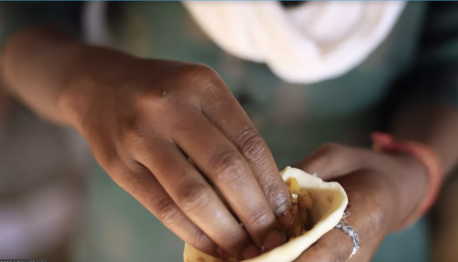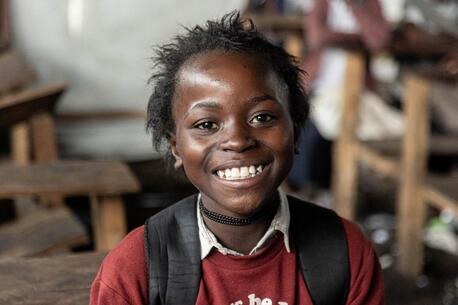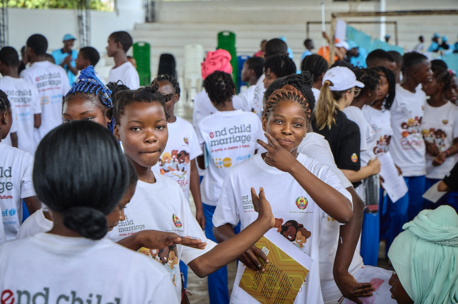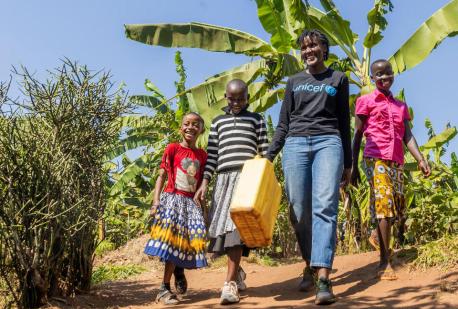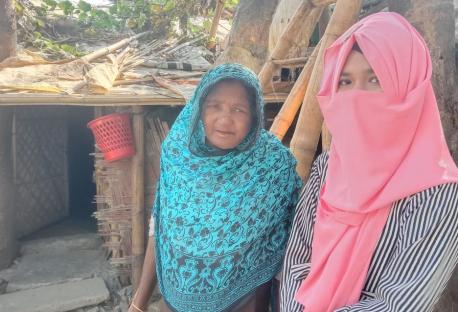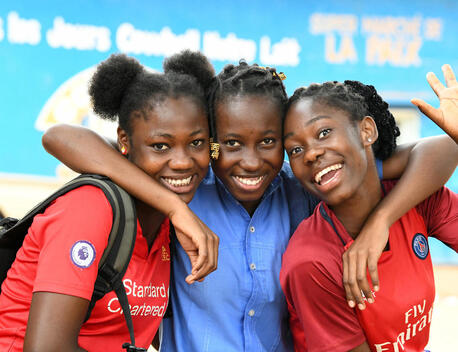
For Every Girl: Gender Equality
Much progress has been made in the new millennium towards gender equality, but much more needs to be done to ensure that girls and boys worldwide have the same rights, resources and protections to reach their full potential. Here is a look at several barriers to gender equality — and some of the ways UNICEF is addressing them.
UNICEF: working nonstop to create a more equitable world for all children
With a mission to ensure equal opportunities for all children, UNICEF has long championed gender equality, working tirelessly with partners around the world to help ensure that every girl and woman can:
- live free from violence
- attend and complete school
- receive comprehensive health care
- choose if, when and whom she marries
- earn equal pay for equal work
Gender equality is essential to ensure that every child has a fair chance in life. Reducing inequality not only protects these rights, it also strengthens economies and builds stable, resilient societies.
Together, climate crises and gender inequality cut across every part of a girl's life. But in a world where every girl is listened to, I know the world would stand a better chance, both when it comes to the existential threat of climate change and to becoming a more equal, innovative, powerful and beautiful place. — Vanessa Nakate, Climate Activist and UNICEF Goodwill Ambassador
Recognizing that adolescent girls in particular are consistently disadvantaged — especially in situations of crisis and conflict — UNICEF makes specific investments in adolescent girls' health and nutrition, menstrual health and hygiene, social protection, education and other critical areas.
“Girls’ rights, no matter where you grow up, matter," says Lauren Rumble, UNICEF’s Associate Director of Gender Equality. "What girls want to do is make the world a better place. Why wouldn’t we want to put resources and attention in their hands?”
Addressing gender inequities
In order to reach the outcome of gender equality, the process of gender equity must be implemented. For instance, all girls should have the opportunity to complete a secondary education, just like their male counterparts do.
Yet there are many obstacles — child marriage, lack of menstrual hygiene, teenage pregnancy, cultural prejudices about girls not needing to attend school — that contribute to gender inequity. Remove these obstacles and access improves — and gender equality becomes within reach.
Simply giving bikes to girls so they can get to school just like boys in their neighborhood — as was the case in Jalna, India — is an example of gender equity:
Progress toward gender equality since the Beijing Declaration
In 1995, the world adopted a progressive blueprint for advancing women's and girl's rights: the Beijing Declaration and Platform for Action.
That plan — created during the Fourth World Conference on Women, which was attended by some 30,000 women and men from nearly 200 countries — outlined many global goals that have been at least partially met in certain regions.
Despite progress made in the decades since, however, many areas around the world still have a long way to go before realizing gender equality in any significant way.
An estimated 1.1 billion girls around the world are still denied their fundamental rights due to poverty, violence and lack of opportunity that disproportionately affect them — and which threaten their health, safety, empowerment and future well-being.
More girls than boys are still missing out on an education
Globally, an estimated 129 million girls are out of school. This includes 32 million girls of primary school age, 30 million of lower-secondary school age and 67 million of upper-secondary school age.
Lack of gender parity is most striking at the upper secondary level: nearly 1 in 4 girls between the ages of 15 and 19 are neither employed nor in education or training — compared to 1 in 10 boys.
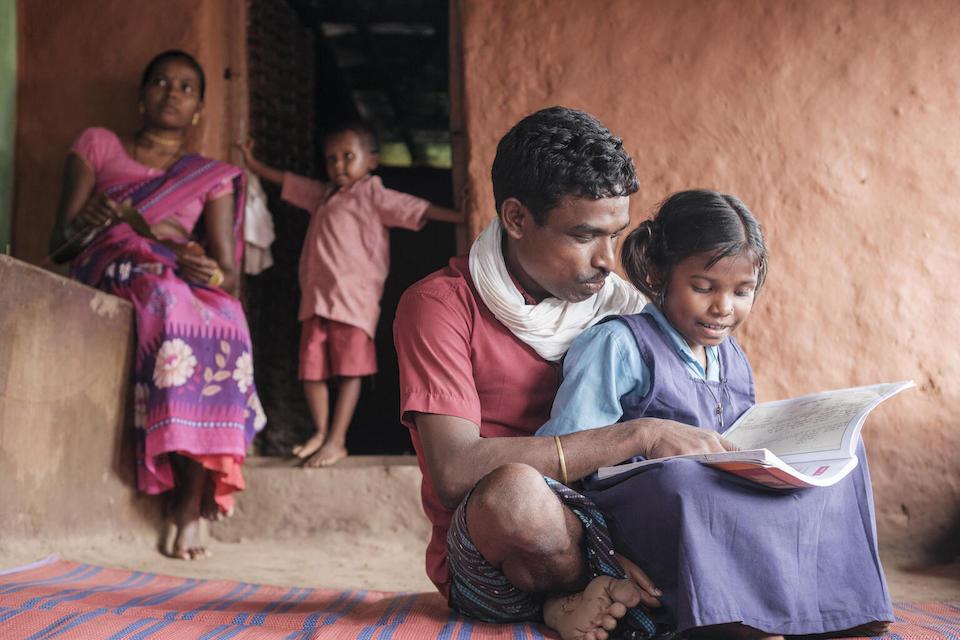
There are many reasons for this, and barriers to education vary among countries and communities. Poor families will often favor sons over daughters when investing in education. Sometimes schools do not meet the safety, hygiene or sanitation needs of girls. Child marriage and other sexual and reproductive rights violations deprive millions of girls of their right to an education. Inequitable gender roles at home also hold girls back from fulfilling their potential.
Girls remain barred from high school and college classrooms in Afghanistan under restrictions set by the country's de facto authorities. The cumulative impact of this, UNICEF Executive Director Catherine Russell says, "is taking a terrible toll on girls’ mental health, overall well-being and on their futures."
Gender-based violence, health inequities persist
The cruel practice of female genital mutilation (FGM) — a serious rights violation — remains prevalent in 31 countries, mainly in Africa and the Middle East. Still viewed as a rite of passage in many communities, FGM not only forces girls to miss school as they recover from the procedure; many often suffer medical complications with trauma that further affects their class attendance and performance.
FGM also serves as a catalyst for girls — some as young as 11 years old — to be married off, effectively ending their education entirely and leading to early pregnancy, which carries serious maternal health risks. Obstructed labor and other complications during pregnancy and childbirth are the second leading cause of death among girls between the ages of 15 and 19.
There are other gender-based health inequities: 75 percent of HIV infections among adolescents aged 10 to 19 occur in girls. And in countries like Algeria, Bangladesh, Egypt, India and Iran, the risk of child death before age 5 is significantly higher for girls than boys, suggesting deep-rooted, gender-based discriminatory practices.
Household chores and the water burden are also holding girls back
Girls aged 10-14 are still twice as likely to spend excessive hours — at least 21 hours per week — on household chores than boys of the same age; usually it's the girls rather than the boys who are sent to fetch water for their household, often from faraway sources.
At least 60 percent of countries discriminate against daughters’ rights to inherit land and non-land assets, impeding their financial independence. Unpaid care work all too often falls to girls and women as well.
Societies steeped in these damaging inequities carry greater risks of gender-based violence. And in emergency situations such as conflict, earthquakes and other disasters, girls and women face significantly higher risks of gender-based violence.
How UNICEF is working toward gender equality
There are many ways that UNICEF partners with governments, NGOs and others to address gender inequities. There are gender equality-specific goals within each major program area, from health, nutrition and education to water, sanitation and hygiene (WASH), child protection and social policy.
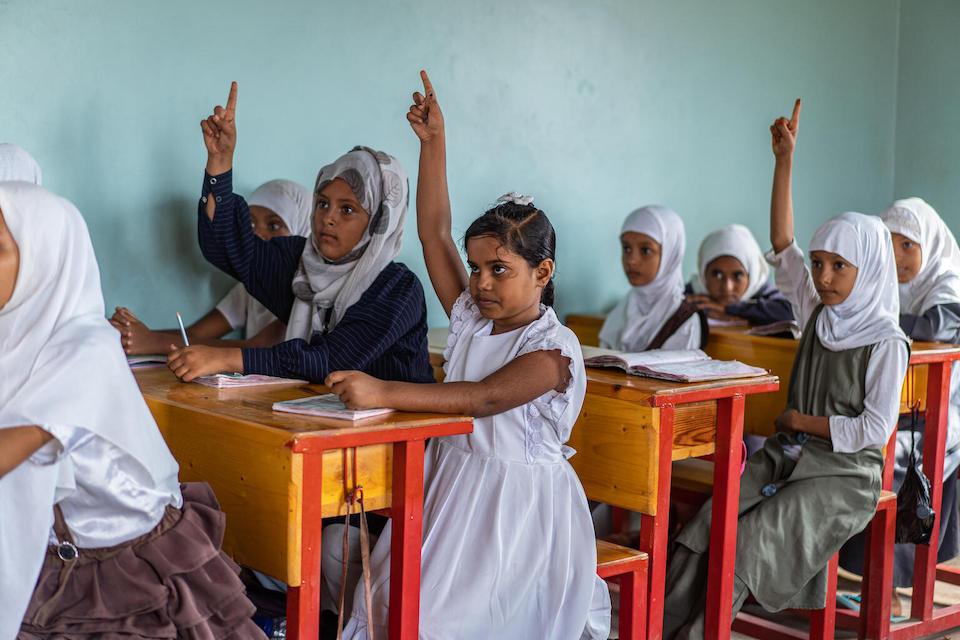
In education, for example, UNICEF supports governments to help ensure national education plans and policies prioritize gender equality; supports schools and trains teachers to help eliminate gender gaps in learning; and leverages cash transfer assistance programs to help poor families defray the cost of sending girls to school.
Here are some other examples of how UNICEF is working toward gender equality:
Ending child marriage, FGM and other harmful practices
UNICEF supports efforts to change laws and policies to effectively end harmful practices like child marriage and FGM. These efforts have made a difference.
The UNFPA-UNICEF Global Program to Accelerate Action to End Child Marriage, launched in 2016, enlists families, communities, governments and young people to help prevent girls from marrying too young and to support those already married as girls in 12 countries in Africa, Asia and the Middle East where the harmful practice is most prevalent.
Efforts include educating parents and communities on the dangers of child marriage, increasing economic support to families and strengthening and enforcing laws that establish 18 as the minimum age of marriage.
Learn about the UNICEF USA-supported campaign to end child marriage in the United States.
UNICEF also collaborates with local governments to provide counseling and psychosocial sessions to adolescent girls who are at risk of undergoing FGM.
Working with UNFPA, UNICEF has helped reach over 6 million girls and women with FGM-related prevention, protection and care services across 17 countries — and 532,158 girls have been spared from undergoing FGM — since 2008. Another result of the support through the joint program: some 45 million people have made public declarations to abandon the practice.
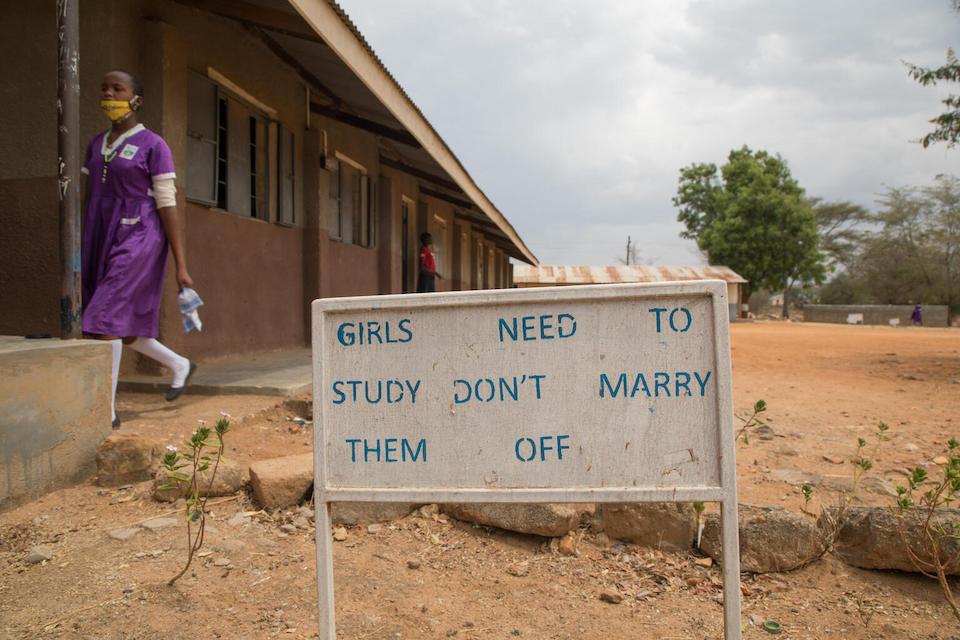
Providing clean water, menstrual health and hygiene support in schools
UNICEF works with partners to make safe drinking water much more accessible, which helps alleviate the water burden on girls. In Ethiopia's Amhara Region, for instance, a new solar-powered water system and borehole now serves a community of more than 30,000 — allowing students like 15-year-old Edime, who used to miss class to fetch water, to focus on her learning.
Other programs equip schools with private changing rooms, single-sex bathrooms and handwashing stations and supply girls with sanitary products — all essential for better menstrual hygiene management at school, thus helping to avoid monthly disruptions to girls' education.
Empowering girls with new skills
UNICEF supports a range of education and training programs that empower adolescent girls and young women with new skills that open doors to employment and other economic opportunities as entrepreneurs, innovators and leaders.
The Skills4Girls program, for example, is active in 22 countries, focusing on STEM — education in science, technology, engineering and mathematics — and digital skills training.
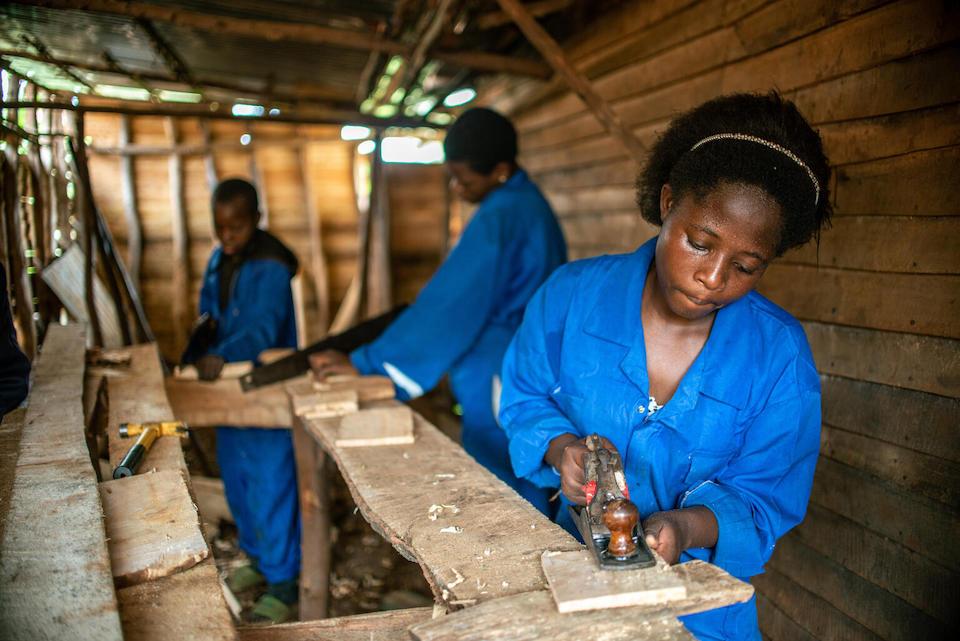
Teaching boys and men about barriers to equality
All children — regardless of sex or age — require quality care and support from women as well as men, especially fathers, to survive and thrive. So in addition to promoting education for girls, UNICEF also works to inform boys and men about barriers to equality and the importance of overcoming them, for the sake of all.
Advancing gender equality also means setting an example
UNICEF continues to build partnerships across the global community to accelerate gender equality through its humanitarian work — integrating strategies that address gender-specific harms, discrimination and disadvantages.
UNICEF is also committed to being a global model for action on gender equality through its own workplace practices, and has set targets to become a more inclusive, diverse and gender-equal operation. In its gender action plan, UNICEF specifies a policy of zero tolerance for discrimination, sexual exploitation, abuse or harassment, including against LGBTQI+ staff within the organization, with partners and across all its programs. Learn more.
With partners, UNICEF is calling for more resources and attention to enable girls to realize their rights and achieve their full potential. Help UNICEF support girls globally.
